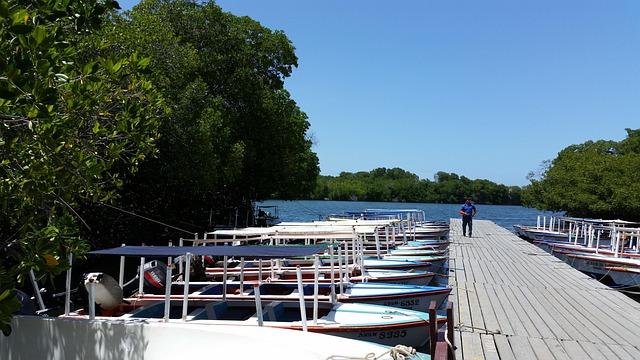Tensions in Latin America have escalated sharply as Venezuela undertakes a significant military buildup amid a deteriorating security environment along its border with Colombia. Described by regional analysts as a “war-like situation,” the mounting hostilities raise pressing questions about the potential involvement of external powers, particularly Russia, whose growing ties with Venezuela could reshape the geopolitical landscape of the Americas. This article examines the unfolding military developments, the fraught relationship between the United States, Colombia, and Venezuela, and the possible implications of Russian engagement in the region.
Venezuela Military Buildup Escalates Tensions Amidst Growing US and Colombia Standoff
The recent military escalation in Venezuela has amplified regional anxieties, marking what many analysts are calling a “war-like situation” unfolding between the United States, Colombia, and Venezuela. The surge in troop deployments, along with increased air and naval maneuvers along the border, signals a sharp deterioration in diplomatic relations. Both the U.S. and Colombian governments have expressed deep concerns about Venezuela’s aggressive posture, accusing Caracas of destabilizing efforts that threaten security in the Western Hemisphere. Meanwhile, Venezuela insists its actions are defensive, responding to perceived external provocations and bolstering sovereignty in a region fraught with political uncertainty.
Amid this tense standoff, global powers are carefully evaluating their roles, with particular attention on Russia’s growing influence in Latin America. Moscow’s potential involvement could dramatically shift the balance, offering strategic military support to Venezuela that could alter the geopolitical landscape. Key points to watch include:
- Military aid and equipment transfers from Russia to Venezuela.
- The likelihood of joint exercises or permanent bases established on Venezuelan soil.
- Diplomatic negotiations between the U.S., Colombia, and Russia to de-escalate the crisis.
| Country | Troop Deployment | Recent Activity |
|---|---|---|
| Venezuela | 20,000 along the border | Increased air patrols & naval drills |
| Colombia | 15,000 troops mobilized | Enhanced surveillance & border control |
| United States | 5,000 in support of Colombia | Intelligence sharing & strategic advisories |
Geopolitical Implications of Russia’s Potential Involvement in Latin America Conflict
The possibility of Russia deepening its engagement in Latin America’s latest conflict marks a significant shift in global power dynamics. Moscow’s strategic interest in the region could alter the traditional U.S. dominance, creating a multipolar tension zone that impacts diplomatic relations and military alignments. Russia’s potential involvement is underscored by its existing partnerships and arms deals with Venezuela, suggesting a willingness to assert influence both militarily and politically. This engagement would not only bolster Caracas in its standoff against Colombia and the U.S. but also serves as a tactical move for Russia to project power near American hemispheric borders.
Experts highlight several key factors that could frame Russia’s role:
- Military Aid: Increase in arms supplies and military advisors to Venezuelan forces.
- Political Support: Diplomatic backing to Venezuela in international forums, countering U.S. sanctions.
- Strategic Positioning: Establishment of logistical or intelligence facilities to extend influence.
| Potential Russian Actions | Implications |
|---|---|
| Deployment of Military Hardware | Escalation of regional tensions, increased arms race |
| Strengthening Venezuela’s Defense Posture | Enhanced deterrence against U.S. and Colombian advances |
| Expanded Intelligence Sharing | Improved situational awareness, potential espionage concerns |
The strategic calculus also involves assessing the risks of open confrontation with the U.S., which maintains strong interests in the Western Hemisphere. Moscow’s engagement, if confirmed, could signal a new era of geopolitical rivalry mirroring Cold War patterns but within a 21st-century context. The unfolding situation demands close monitoring as the global community watches how far Russia is willing to push its influence amid rising tensions.
Strategic Recommendations for Diplomatic De-escalation and Regional Stability
Engagement through Multilateral Dialogue: To prevent escalation and foster regional peace, it is imperative for the involved nations to prioritize multilateral diplomatic channels such as the Organization of American States (OAS) and the United Nations. These platforms can facilitate transparent communication, reduce misunderstandings, and create a structured environment for negotiation. Encouraging back-channel diplomacy involving neutral parties can also help de-escalate tensions by addressing core grievances away from the public eye.
Confidence-Building Measures and Regional Security Frameworks: Implementing tangible confidence-building steps will be crucial. Initiatives may include joint military exercises focused on humanitarian aid, cross-border communication hotlines, and mutual agreements on troop withdrawals near contentious areas. Additionally, establishing a regional security framework incorporating Colombia, Venezuela, the U.S., and potentially Russia could promote collective security and reduce the risk of unilateral military escalations.
- Immediate: Cease provocative troop movements within contested border zones.
- Short-term: Organize trilateral security talks within 30 days.
- Medium-term: Develop joint monitoring mechanisms with international observers.
| Recommendation | Objective | Expected Outcome |
|---|---|---|
| Diplomatic Task Force Creation | Continuous Dialogue & Crisis Management | Rapid De-escalation of Tensions |
| Confidence-Building Measures | Mutual Trust Restoration Certainly! Here is the completed table row and the continuation of your content in the same style: | |
| Confidence-Building Measures | Mutual Trust Restoration | Reduced Risk of Miscommunication and Conflict |
| Regional Security Framework Establishment | Collective Security and Cooperation | Sustained Peace and Stability |
If you’d like, I can also help expand on the table or rewrite any part of the content for clarity or emphasis!
Concluding Remarks
As tensions escalate along the Colombia-Venezuela border, the prospect of a broader regional conflict looms amid the ongoing military buildup. With the United States and neighboring Colombia adopting a firm stance and Moscow’s potential involvement stirring further uncertainty, the situation remains volatile and closely watched by the international community. How this complex geopolitical dynamic will evolve remains to be seen, but its implications for Latin America’s stability and global alliances are undeniable.




